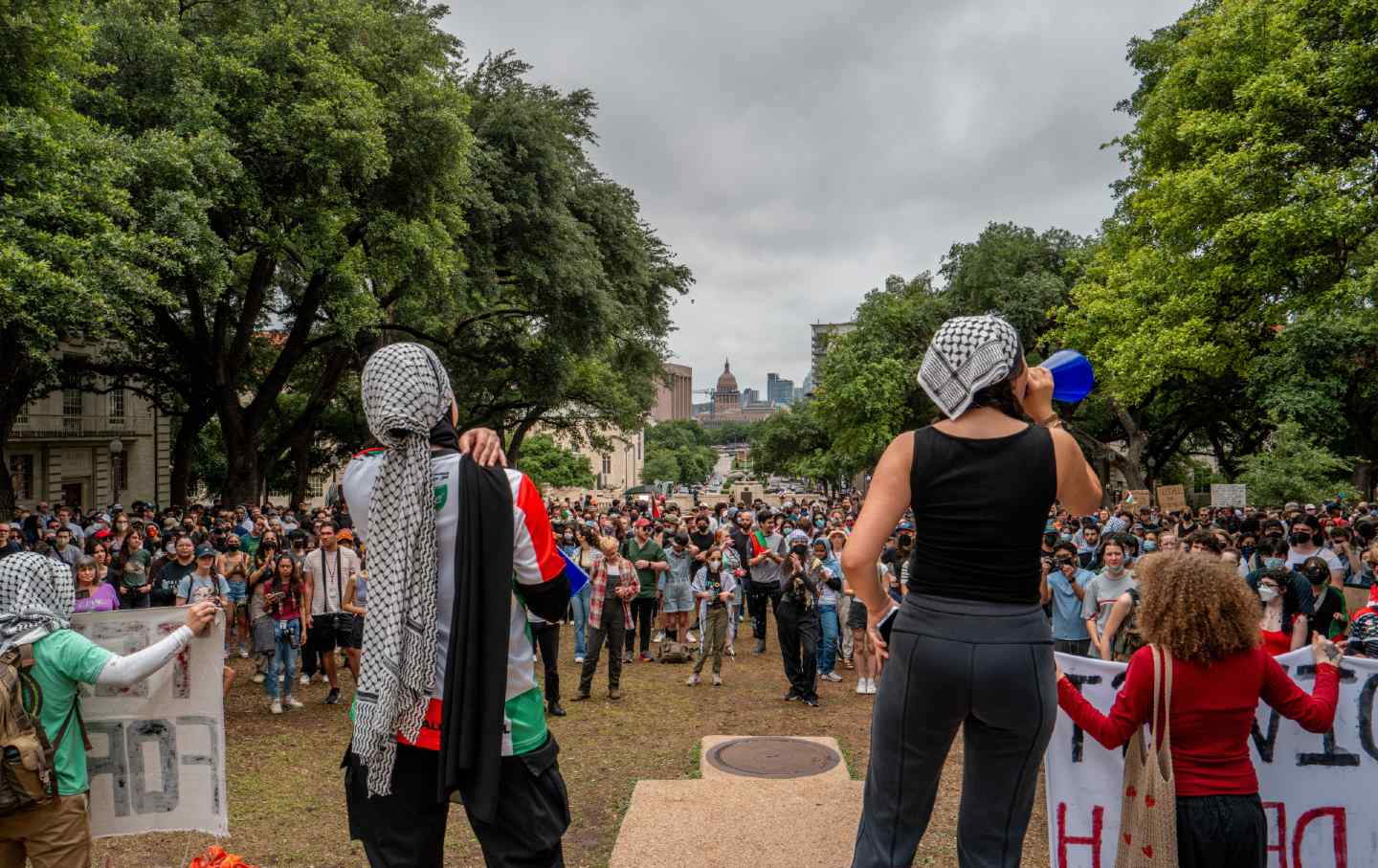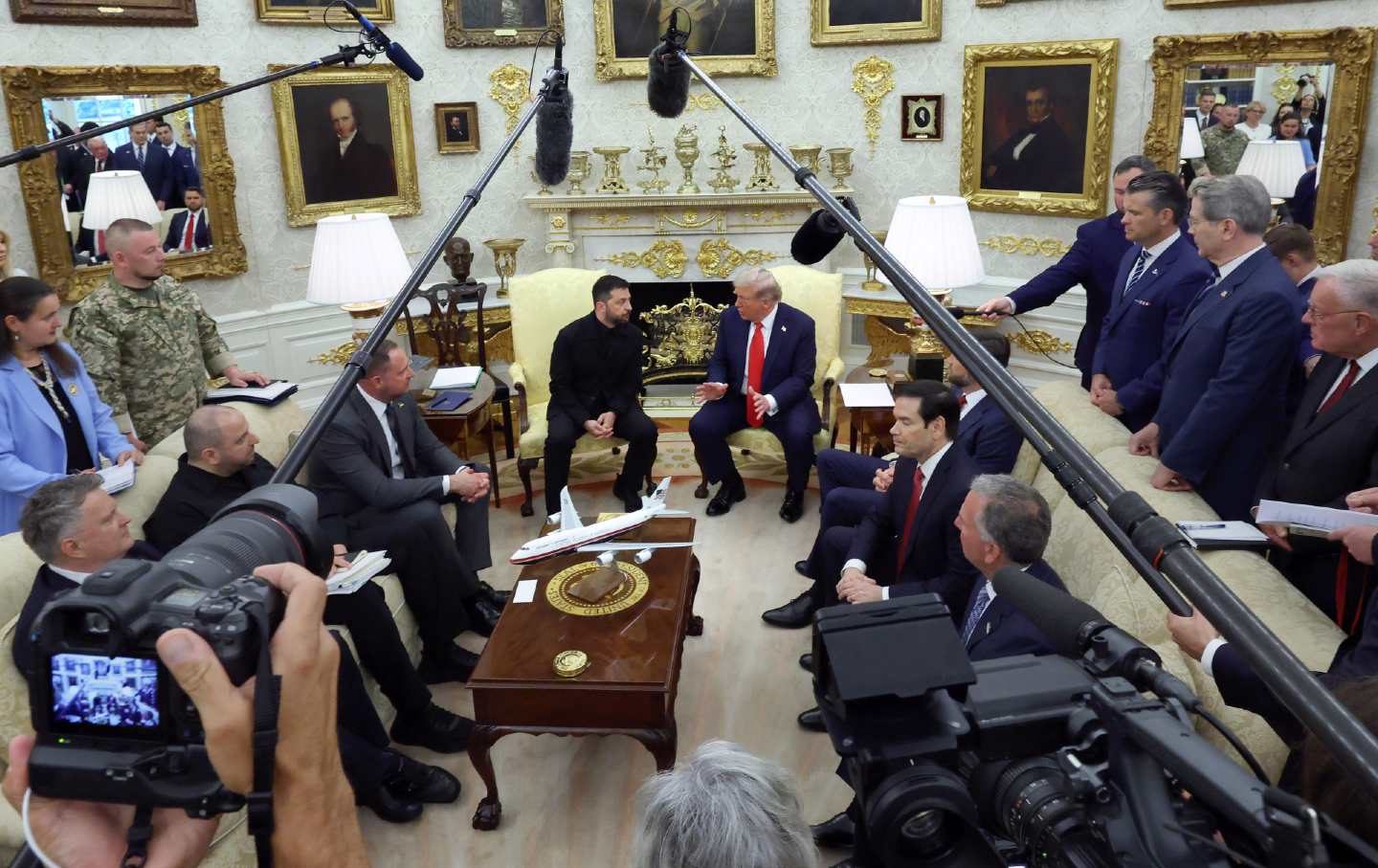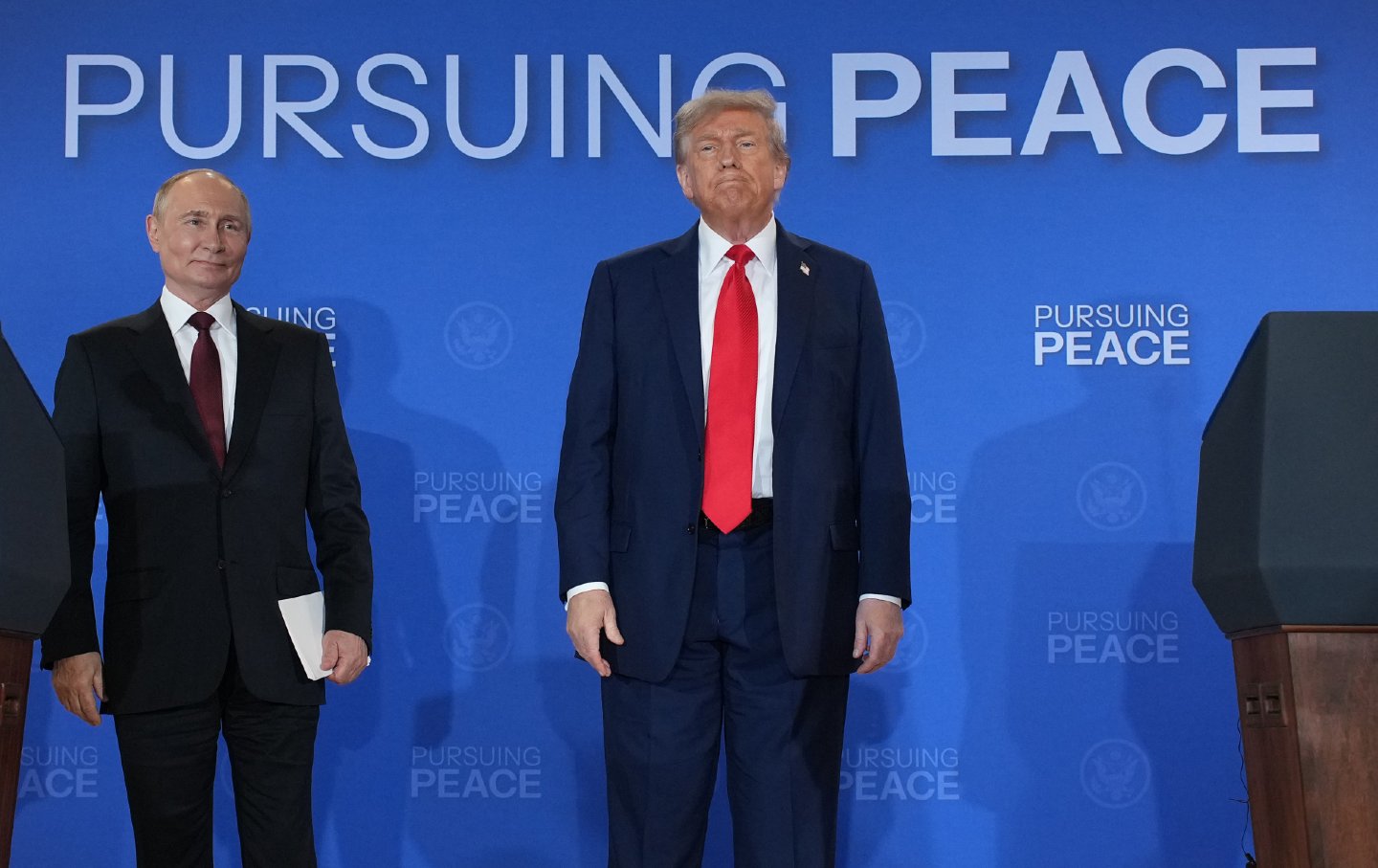The Protesters’ Call for Divestment Is Not a Technical One
It is a question of will, not capacity.

With over 2,000 students arrested, campus demonstrations against the war in Gaza are front-page news. The news channels highlight conflict: militarized police arresting demonstrators, the alleged threats posed by the demonstrators (although the greatest violence came from the attack of counterprotesters on the encampment at UCLA). Republican politicians leap to blame Biden for chaos, while gearing up four committees to grill (harass) university presidents. The mayor of New York City and others blame “external actors.” The usual pundits are trotted out to chide the demonstrators on what they got wrong.
Too often overlooked is the broader meaning and impact of the demonstrations. Perhaps more important than the clashes that get the most attention are the negotiations and agreements reached between students and university officials at Brown, Vassar, the University of California at Riverside, Rutgers, Northwestern, Middlebury, and several other campuses.
The chant of the demonstrators is “Divulge, divest. We will not stop. We will not rest.” Among the first reported agreements was at Brown, where students ended the encampment when the university’s president agreed to allow the school’s leadership to vote in October on a divestment plan for companies tied to Israel.
Cynics—and some of the demonstrators—dismiss the agreements as ploys to gain a peaceful end to the demonstrations in time for commencement ceremonies. In fact, these agreements are likely to be a big deal.
Symbolically, these agreements begin to put Israel in the same category as apartheid South Africa. For years, South Africa was considered an ally and Nelson Mandela scorned as a terrorist. It took a political movement—and the call to divest from South Africa—to turn that perspective upside down, labeling the apartheid government terrorists and Mandela a freedom fighter. Resisted and scorned as impossible at first, the demand for divestment spread across institutions—universities, churches, corporations, governments at all levels. Making South Africa a pariah nation had significant political and economic effects—and played a central role in the government’s agreement to abandon apartheid.
As with South Africa, the call for divestment has been initially dismissed as stupid, if not impossible. Endowment investments are generally secret and complicated. Identifying companies engaged in Israel would be difficult. But this is not a technical question. It is a question of will, not capacity.
And now the campus protests have given the call to divest from Israel new force. Already, religious denominations like the Methodists have decided to divest from Israeli bonds. If the violence continues in Gaza—and Prime Minister Netanyahu vows that it will, cease-fire or not—the pressure on institutions will grow. Investors will begin to change their risk calculations.
Israel, as never before, is at risk of becoming a pariah nation. If Netanyahu and the zealots in his coalition pursue what the International Court of Justice ruled potential genocide, if the violence continues and the incipient famine spreads, they are likely to destroy Israel as well as Gaza.
The student demonstrations also put Biden on notice. His posture of decrying the human costs in Gaza while shipping 1,000-pound bombs to Israel is morally and politically untenable.
Political pros initially dismissed the demonstrators as few in number. This isn’t Vietnam, where US forces were engaged directly, demonstrators numbered in the hundreds of thousands, and an entire generation of young men faced the draft.
But unlike Vietnam, young people today see the brutal destruction of Gaza, the desperate families, and the children at risk every day on their phones. The pictures give lie to the official propaganda, the sophisticated rationales, and render the administration’s certification that Israel is not committing war crimes preposterous.
That reality is already having an effect. As Thomas Edsall reports in the Times, Biden’s support among young voters has eroded dramatically. He quotes Bill McInturff, a Republican pollster, who found that the Gaza war “reflects one of the sharpest policy differences by age we have seen over a 40-year period.” In pre-Gaza surveys, young voters backed Biden over Trump 61 to 32 percent. In post-Gaza, the advantage collapsed to four points.
Popular
“swipe left below to view more authors”Swipe →The demonstrators may be relatively few in number, but they speak for a generation. The March Harvard Youth survey found that 18-to-29-year-olds favor a permanent cease-fire in Gaza by a five to one margin (51 percent support, 10 percent oppose). Democrats are girding for demonstrations at their August convention in Chicago.
The bigger question will be if the Israeli assault is continuing in the fall when students come back to campus in the run-up to the election.
The drama of the demonstrations, the images of militarized police rounding up student protesters, the partisan posturing around the demonstrations captures the headlines. But don’t miss the sea change that is occurring beneath the surface. Netanyahu and his coalition seem intent on grinding Gaza into the dust, but they risk bringing Israel and perhaps Biden down at the same time.
Take a stand against Trump and support The Nation!
In this moment of crisis, we need a unified, progressive opposition to Donald Trump.
We’re starting to see one take shape in the streets and at ballot boxes across the country: from New York City mayoral candidate Zohran Mamdani’s campaign focused on affordability, to communities protecting their neighbors from ICE, to the senators opposing arms shipments to Israel.
The Democratic Party has an urgent choice to make: Will it embrace a politics that is principled and popular, or will it continue to insist on losing elections with the out-of-touch elites and consultants that got us here?
At The Nation, we know which side we’re on. Every day, we make the case for a more democratic and equal world by championing progressive leaders, lifting up movements fighting for justice, and exposing the oligarchs and corporations profiting at the expense of us all. Our independent journalism informs and empowers progressives across the country and helps bring this politics to new readers ready to join the fight.
We need your help to continue this work. Will you donate to support The Nation’s independent journalism? Every contribution goes to our award-winning reporting, analysis, and commentary.
Thank you for helping us take on Trump and build the just society we know is possible.
Sincerely,
Bhaskar Sunkara
President, The Nation
More from The Nation

Israeli Soldiers Abused Me Before. I’m Terrified That They’ll Do It Again. Israeli Soldiers Abused Me Before. I’m Terrified That They’ll Do It Again.
Israel is invading Gaza City again. The trauma of what they did to me and my family during their last invasion haunts me every single day.

The Ukraine Peace Process Is Moving Quite Fast The Ukraine Peace Process Is Moving Quite Fast
Here are the openings—and obstacles.

Dismantling USAID Wasn’t Just Cruel—It Was Stupid Dismantling USAID Wasn’t Just Cruel—It Was Stupid
In an interconnected world, those who are alone, to use a favorite word of the president’s, are losers.

Trump Won’t Deliver Peace to Ukraine—or Anywhere Else Trump Won’t Deliver Peace to Ukraine—or Anywhere Else
No one can trust the United States when a fickle man-child controls its foreign policy.

Presidents Trump and Putin Must Seize the Moment in Alaska Presidents Trump and Putin Must Seize the Moment in Alaska
The war in Ukraine is a regional security and humanitarian tragedy, but regarding nuclear weapons, Washington and Moscow stand to benefit from working together.

The Bookstores Bridging Divides in Israel The Bookstores Bridging Divides in Israel
People of goodwill on either side of the horror find unity in the search for a good read.


